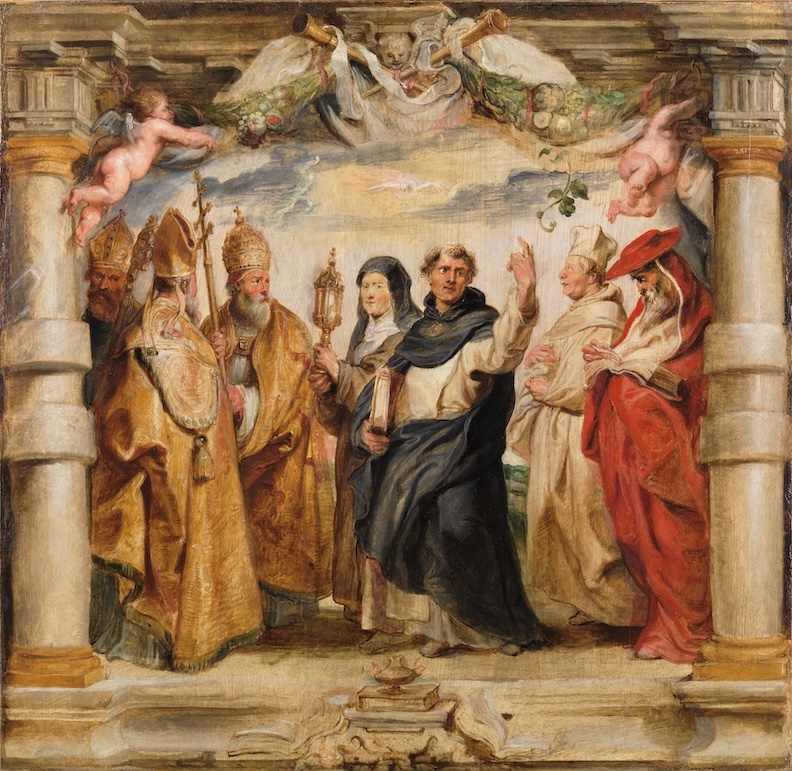Even before the Batflu lockdowns, which began in 2020, a desolation in the Catholic Church had become apparent.
Although statistics must necessarily be inadequate to convey it, we can get a vague glimpse through the surveys. What, we wonder, do Catholics “really” believe?
I say vague because we can’t ask simply who believes and who does not believe what they have been taught. For one thing emerges from the research rather clearly: that “modern” Roman Catholics aren’t taught very well.
This works both ways. Those who don’t go to church don’t learn what is taught, and those who haven’t been taught don’t go to church. But we can’t realistically compare the worlds of past ages. We have only romantic or cynical impressions.
Yet there is evidence of a decline towards debilitation in the last fifty or sixty years. Demonstrably, church attendance has fallen dramatically.
According to a fairly thorough study by the Pew Forum, done just before the Batflu hit, it was established that less than a third of living Catholics were practicing actual Catholicism, by holding the most basic Catholic belief.
I do not think that the lockdowns improved this circumstance, though I haven’t seen “scientific” counts. But that minority of outwardly declared Catholics who had been attending, found themselves in many cases locked out of church. In the time since, many would seem to have wandered away.
Let me refresh the reader’s memory of that last Pew report on us, from 2019.
Some 69 percent of self-identifying Catholics did not accept transubstantiation. That is to say, they did not consider the Real Presence to be Real, even to the standard of opinion polling.
Instead, a majority of them believe that the bread and wine in the sacrifice of the Mass are merely “symbols” of something.
The Real Presence of Our Lord is thus disbelieved. Yet of those disbelievers, a large minority of those who sometimes made it to Mass were aware that the Church does in fact teach the Real Presence. Most still rejected Church teaching on this, and incidentally on other issues.
A considerable number (chiefly of those no longer attending the Mass) are confused even about the symbol. Their Reason must have left them along with their Faith.
Bishop Barron and some others have specifically addressed this “crisis”; a selection of senior clergy have given some indication of panic; and the small section of what we call “traditionalists” (i.e. Catholics who sport Catholic views) are resisting, daily and weekly.

But disbelief is “a problem” not only for Roman Catholics but also among the Greek, Russian, and Oriental Orthodox, and in those Protestant realms where some version of the Eucharist is still sometimes celebrated.
Beyond the churches, the modern mind finds the doctrine of the Real Presence implausible. The churches are emptying wherever modern life gathers on the streets outside; wherever men and women feel genuinely free not to think about it.
For the curious thing is that the Real Presence is more commonly believed among those who think, and enjoy better education in the most tangible forms, everywhere. This must be understood to confront the challenge of “re-evangelizing” the congregations that have “got away.”
The distinction between wisdom and raw crass IQ is not entirely unknown. Wisdom intrudes upon intelligence by its sincerity, and by demanding full attention. The glibness of modernity is, by this definition, unwise.
In general, in Africa and China, the believer is compelled to be serious. That is why disbelief in the Real Presence is, from what we can test, less a problem over there.
Within the European lands and the Americas, however, the situation is overwhelmingly grim. For those who believe in the reality of the Church, founded and animated by Christ Jesus, it will be hard to recover. (Though everything is possible.)
Those already born into this “Western” world do not appear to be promising subjects for conversion. Most, even in the more obscure places, have at least heard of the Christian life, but have at some level decided that it is not for them.
Ignorance of Christian doctrine is the consequence of our fashions. The background condition, of not being serious about the vital questions, is something few are willing to overcome. To think deeply about what is involved will require of them a spiritual effort nearly tantamount to religious insight. It is not a computer game. There are no obvious rewards for thinking.
But the alternative belief in symbols, and symbolism, is part of the reward for not thinking. It underlies the habitual, the “going through the motions.” It is, in fact, a lower form of religion, that can be available and has been available to mediocre minds all along.
For what no pollster can discover, and is a secret only for God, is that a person can say he believes in the Real Presence yet understand it only as a glib formula. Surely, in the past, plenty of Catholics must have done this, and attended church only because all their neighbors were attending.
This point is worth grasping. For other religions are also experiencing a decline in popular belief, thanks to the nature of modernity. The world is getting ever glibber, and religions of any sort don’t fit.
The next religion over from Christianity, geographically, is Islam; and it may seem to us that Muslim fanaticism has been enjoying a revival. In many places, terrorism seems to make the call to Islam emphatic.
Islam is no exception, however. The religion itself has a profoundly political dimension, and its revival is largely a political phenomenon. In almost every place it was preceded not by revived religiosity, but by revolutionary Marxism. The invention of Islamism was a variation on Communism. It demands of its fanatics only arbitrary “Sharia” – attention to precepts, rules.
But the presence of Christ in the sacrifice of the Mass is, in fact, not a rule. It is the substance of the thing.

















